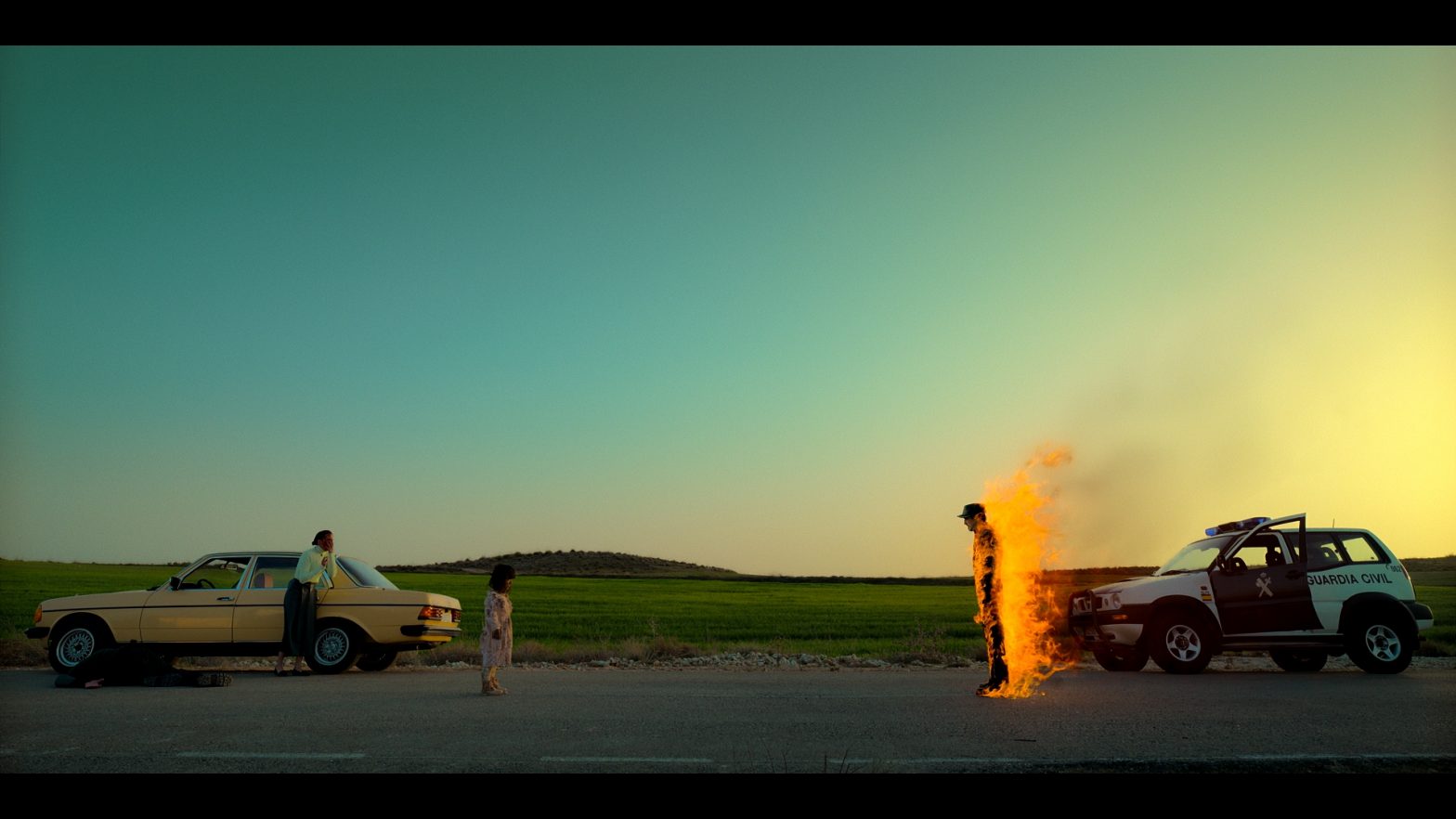In the Spanish film, Everyone Will Burn (Y todos arderán), the story is set in the small town of Rozas del Monte. There is some history in the town of an action taken in 1980 by some locals that was done in efforts to release them from a supposed curse of an apocalyptic event. Four decades later, it is still not discussed and is shoved under the rug, but there is a shade of memory that lives in a children’s nursery rhyme. Everyone Will Burn is directed by David Hebrero (Dulcinea, 2019), from a script he wrote with Javiar Kiran. The story moves to the present with a town resident, María José (Macarena Gómez), on the brink of ending her life after major loss in her life. For over a decade she has been in grief over the loss of her only son, Lolo, who was bullied by schoolmates “for being different,” and subsequently, her husband David (Rodolfo Sancho) left her and is remarried to Ari (Ella Kweku) who is now pregnant. The fact that in this small town, the mayor’s son Antonio (Guillermo Estrella) who is among her son’s persecutors, remain unpunished is an open wound. She feels ostracized by the small-town residents.
To some readers (or viewers who have seen the film), the story may be interpreted as melodramatic, a bunch of small-town gossip and/or other descriptions. When María José is about to check out of this world, a small person appears in tattered and muddy clothes and calls her “mama.” After questioning who appears to be a child (Sofía García) because of her height, she doesn’t provide a name for herself, or parents. María José decides to take her to the police station for help. On the road to town, two law enforcement autos pull her over. The small person sees the law as threatening them, especially María José, so she takes matters into her own hands (or body). She grilled at least one of them where they stood. The filmmakers are not writing a telenovela here. María José decides to shelter Lucia in her home, hidden from the small-town snoops. The feeling of being a mama again is overwhelming.
Despite observing the supernatural powers Lucia displayed, María José establishes a bond with her that most individuals may not. The girl hides some very dark origins and when she is seen in town, she is perceived to not be an ordinary person. The villagers accuse Lucía of killing locals, so the town’s leaders threaten María and her family. The local prophecy of an impending apocalypse is rekindled. Lucia does not take kindly to threats. Her anger and wrath come through the screen in full force.
The two actresses, Gómez and García, are perfectly paired for these characters. Gómez displays an excellent range of dramatic emotions, from the loss she has lived through, some flashes of happiness and yet again, preparing to face off with the townspeople over yet another child and what she has been holding back over all these years. Lucía’s creepy smile and laughter should make those townsfolk take heed, but these are not ordinary neighbors either.
Some of the script’s mythology may not be fully clear about the history and prophecies, but ultimately, I did not find this to be a deterrent for enjoying the film with the visual effects and excellent performances from the lead actresses and some of the supporting cast.
The film made its North American premiere at Fantastic Fest and anticipate a future release date.
Source: Raven Banner Entertainment
